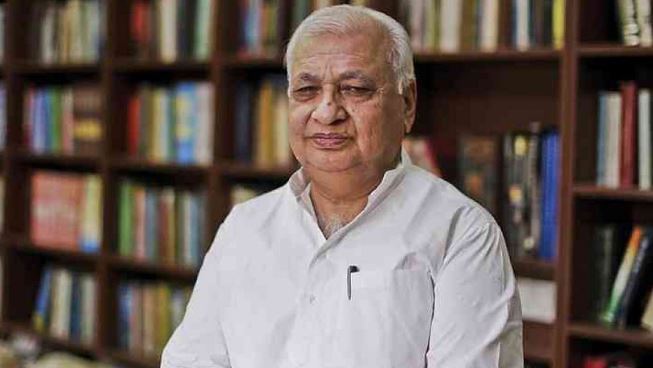Arif Mohammad Khan, the Governor of Kerala and a former Congress leader, has issued a statement in support Citizenship Amendment Act, which provides provisions for citizenship to the persecuted minorities of Pakistan, Bangladesh and Afghanistan. According to Khan, Gandhi strongly supported the idea of giving shelter to non-Muslims facing persecution in Pakistan.
“Today, it is being seen as communal, but there has always been a national consensus on the issue with (senior Congress leaders) Manmohan Singh, Ashok Gehlot and Pranab Mukherjee voicing their commitment to the cause,” said Khan.
On the preparation of National Registrar of Citizenship (NRC), Khan said that it was Congress’ brainchild to prepare a register of citizens of the country. He was speaking at the Nehru Museum Memorial and Library on the topic of “Citizenship institutional and civilizational.”
Khan gave historical examples of how Gandhi also supported the idea of migration of Hindus and Sikhs to India from West and East Pakistan.
“A month before Partition, nobody accused Gandhi of being communal. He too had said that Hindus and Sikhs who do not want to live there, without doubt they have the right to come to India. It was recognised as their right, not a favour,” said Khan, and quoted Gandhi on the matter.
Previously, Swamy also reminded the Parliament about the Congress party, back in November 1947, passed a resolution to grant citizenship to refugees from Pakistan. He reminded the Congress party about the memorandum submitted by former Chief Minister of Assam- Tarun Gogoi to Manmohan Singh in 2012, pleading that the religious minorities from countries like Bangladesh should be given citizenship.
Khan is among the progressive and well-read Muslims, who wants fundamental reforms in the Muslims society. Back in 1986, almost three decades ago, Khan had resigned from the cabinet minister post in Rajiv Gandhi government; on the issue of Triple talaq. Triple Talaq shouldn’t have gone beyond 1986 and the fact that it has, is no one’s but the previous Congress governments’ fault, said Khan a few months ago, in an interview with TheWire.
Significantly, in the last seventy years after independence, a strange kind of discourse has been going on in the country and the politics of Muslim appeasement has become synonymous with secularism. The politics of caste has been called the politics of social justice, but talking of Hindu is considered as politics of communalism. The communal politics of Muslim appeasement under the guise of secularism from the country needs to end and the so-called voice of Muslims in the country should learn from Arif Mohammad Khan and try to emulate him.
























